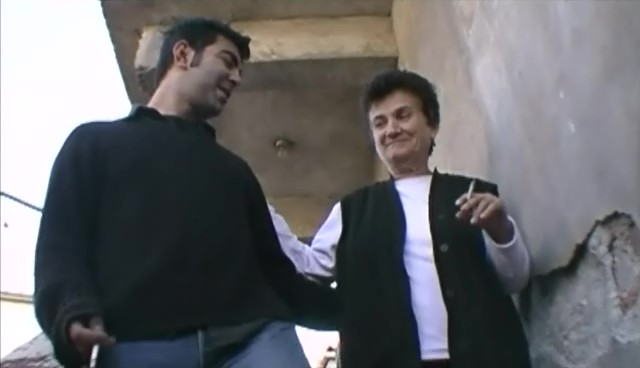Wir haben vergessen zurückzukehren





Produced in 2001 as part of the TV series “Denk ich an Deutschland”, Fatih Akin’s „Wir haben vergessen zurückzukehren“ is an intimate documentary film about the history of his parents who migrated to Germany and “forgot” to make their initially planned return a reality.
Awarded with the “Golden Bear” in 2004 for the feature film Against the Wall, the filmmaker Fatih Akin embodies the recognition of the second generation of so-called “guest workers” – the people, who moved to Germany from countries like Turkey, the former Yugoslavia, Italy and so on, with the plan to remain only “guests” in the “host country”, but eventually building a new life there and still shaping their host country’s society today. In the documentary film Wir haben vergessen zurückzukehren, the director uses his own family as an example to pose the question of the originally planned – but never realised – return to Turkey and how complex the term home can become for the second generation.
In the documentary film that was produced for the TV series “Denk ich an Deutschland” Fatih Akin sets out on a very personal quest. He visits the places of his childhood in Hamburg-Altona, talks to his parents about their experiences in their “new homeland” and their everyday working life. He travels to Istanbul, where the now returned relatives live, and to the fishing village of Filyos by the Black Sea, which marks the beginning of his father’s journey to start a new life in Germany. In this film project, Akin deliberately avoided alienation effects:
“I didn’t want to stage my family. It’s an intimate film, which is why a layman stands behind the camera. A home movie, as non-professional as possible”. (Akin 2011)
For the German film scholar Dagmar Brunow, the film’s aesthetic simplicity also stands for something else: in her analysis of the film, she regrets that the film is celebrated in its scientific reception, but only in terms of its content – and here solely with a focus on the topic of migration. For Brunow (2011), however, Akin’s film offers aesthetically subversive strategies that undermine such essentialist national attributions. The subjective narrative attitude in the film draws attention to the contextual dependency of knowledge, the search for “transnational spaces” such as the restaurant “Sotiris” of the German-Greek actor Adam Bousdoukos and the upholding of an “Altonaer” identity negate simple national attributions just as much as the use of a non-Turkish, popular English-language sound list. “The film [rejects] essentialist notions of stable, unchangeable identities determined by territorial origin,” says Brunow (2011, 183).
Fatih Akin
1973, Hamburg. Studied visual communication at the “Hochschule für bildende Künste” in Hamburg. First success with Kurz und schmerzlos (1998), first international success with Gegen die Wand (2004, Golden Bear, German Film Prize, European Film Prize). In the meantime, Akin has become one of the best-known German film directors (Tschick, 2016; Der goldene Handschuh, 2019), who is both thematically and personally committed to marginalised people and their stories in a migration society.
Credits
BUCH, REGIE: Fatih Akin.
KAMERA: Gordon A. Timpen.
TON: Jörn Martens, Stefan Schmahl.
SCHNITT: Andrew Bird.
SCHNITT-ASSISTENZ: Nikolai Hartmann
MITWIRKENDE: Fatih Akin, Hadiye Akin, Mustafa Enver Akin, Cem Akin, Adam Bousdoukos u. a.
PRODUKTION: MegaherzTV Fernsehproduktion / BR / WDR.
PRODUZENT: Franz X. Gernstl, Fidelis Mager.
URAUFFÜHRUNG: September 2000, Filmfest Hamburg, TV-Erstsendung: 28.11.2001, ARD
Weiterführende Literatur
- Akin, Fatih: Im Clinch. Die Geschichte meiner Filme. Reinbek: Rowohlt, 2011. Download hier: www.rowohlt.de/fm/131/Akin_Clinch.515712.pdf
- Brunow, Dagmar: “Film als kulturelles Gedächtnis der Arbeitsmigration: Fatih Akins Wir haben vergessen zurückzukehren“. In: Ozil, Seyda / Hofmann, Michael / Dayioglu-Yücel, Yasemin (Hg.): 50 Jahre türkische Arbeitsmigration in Deutschland. Göttingen: V&R unipress, 2011, 183-203.
Translated by Jana Walch


